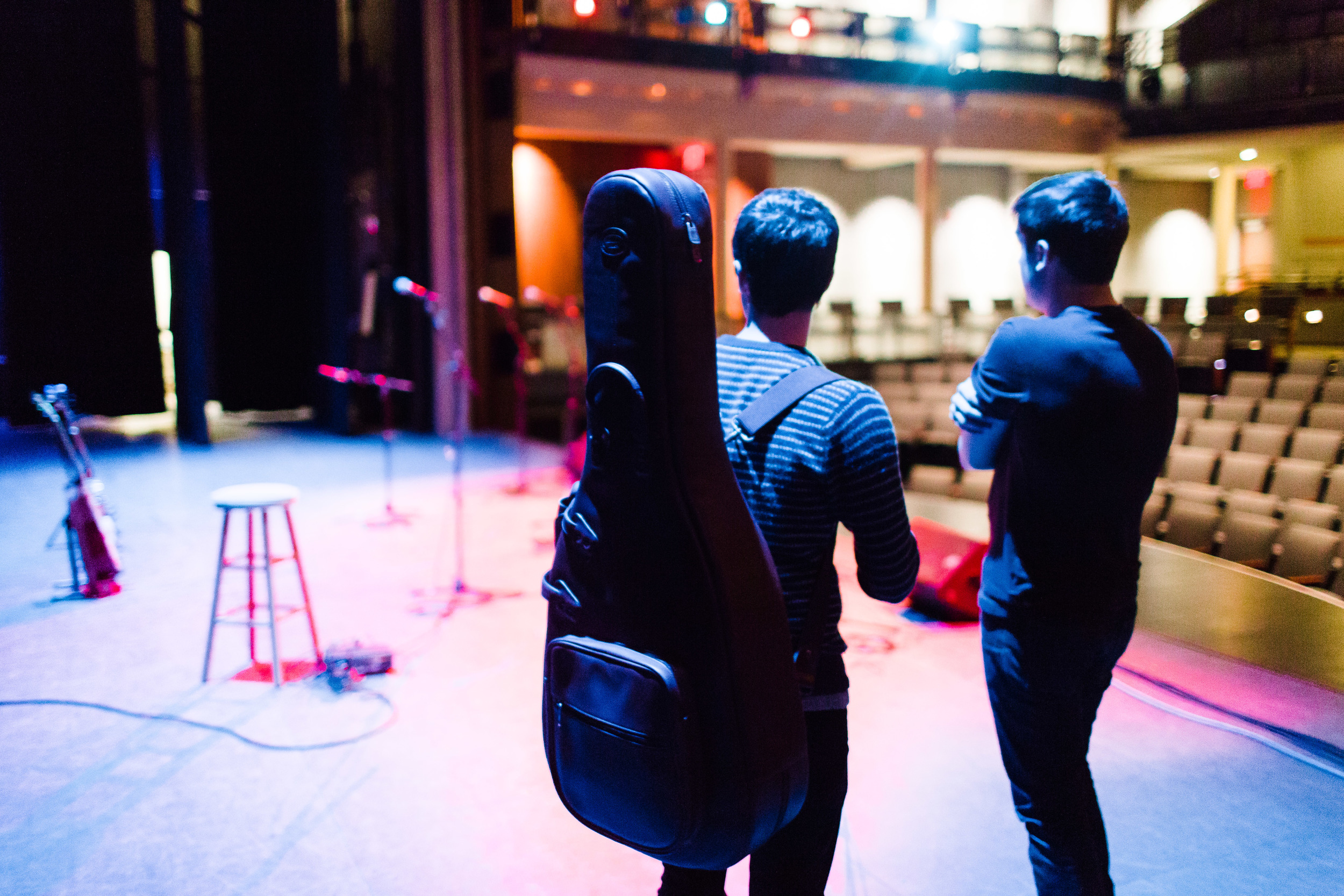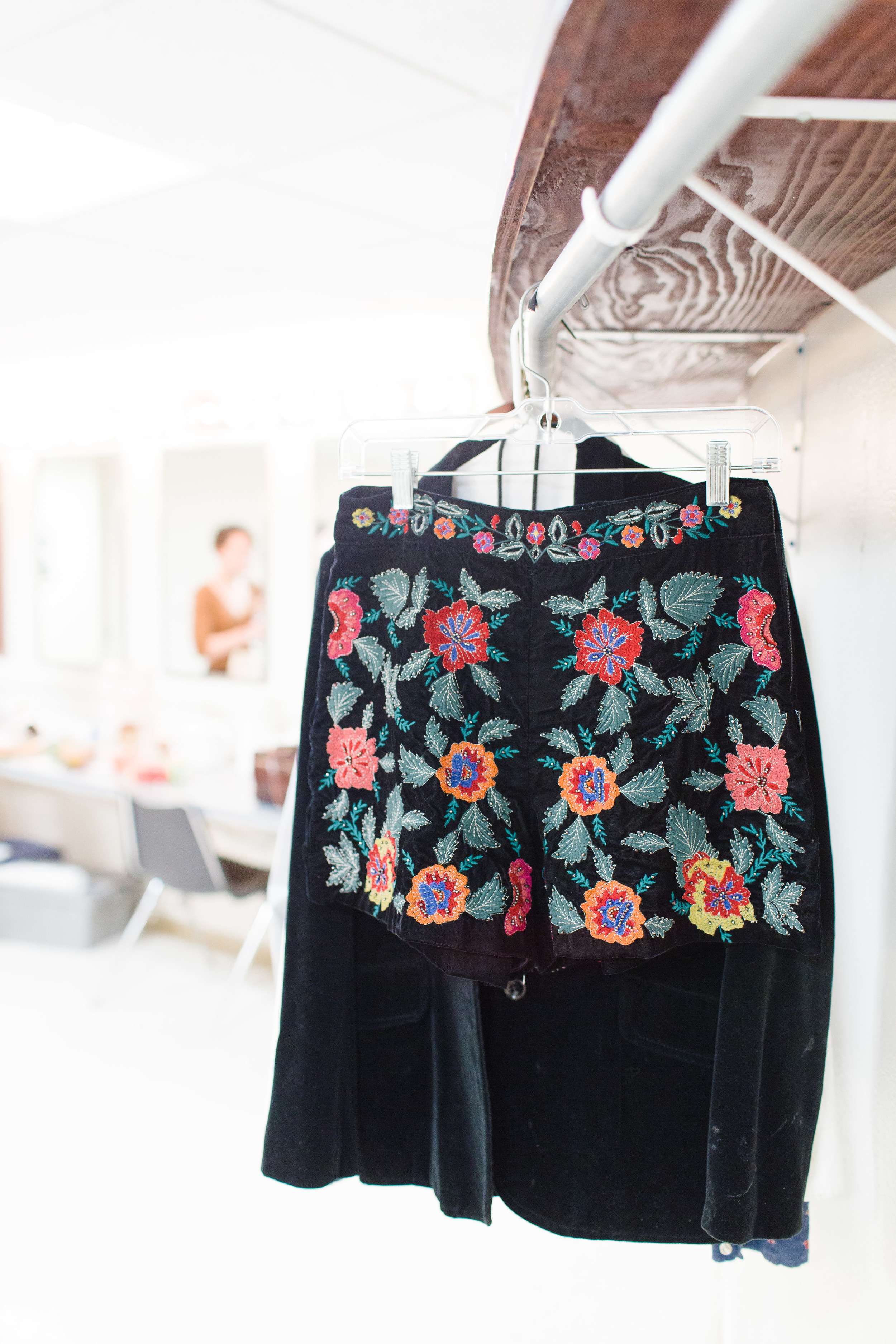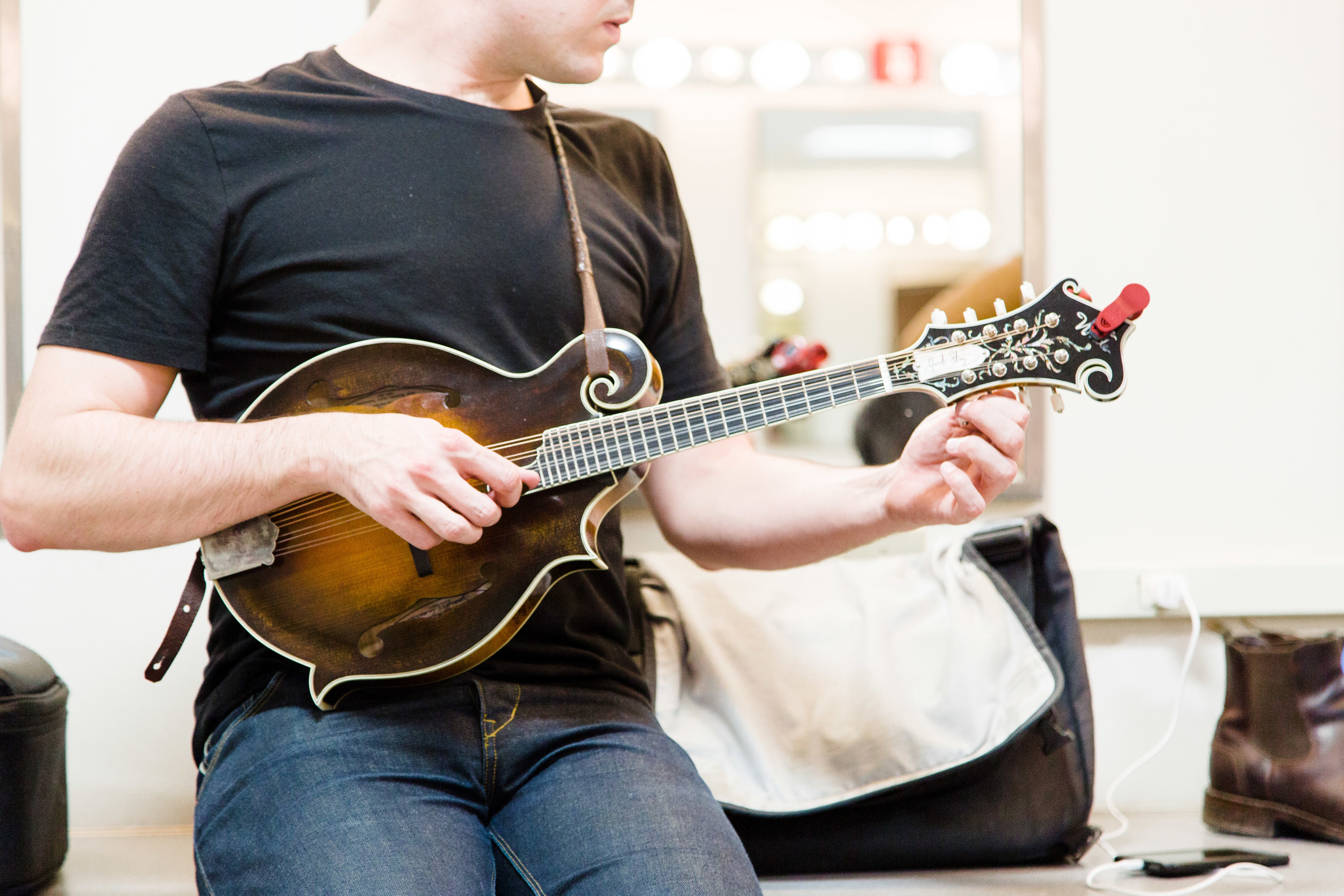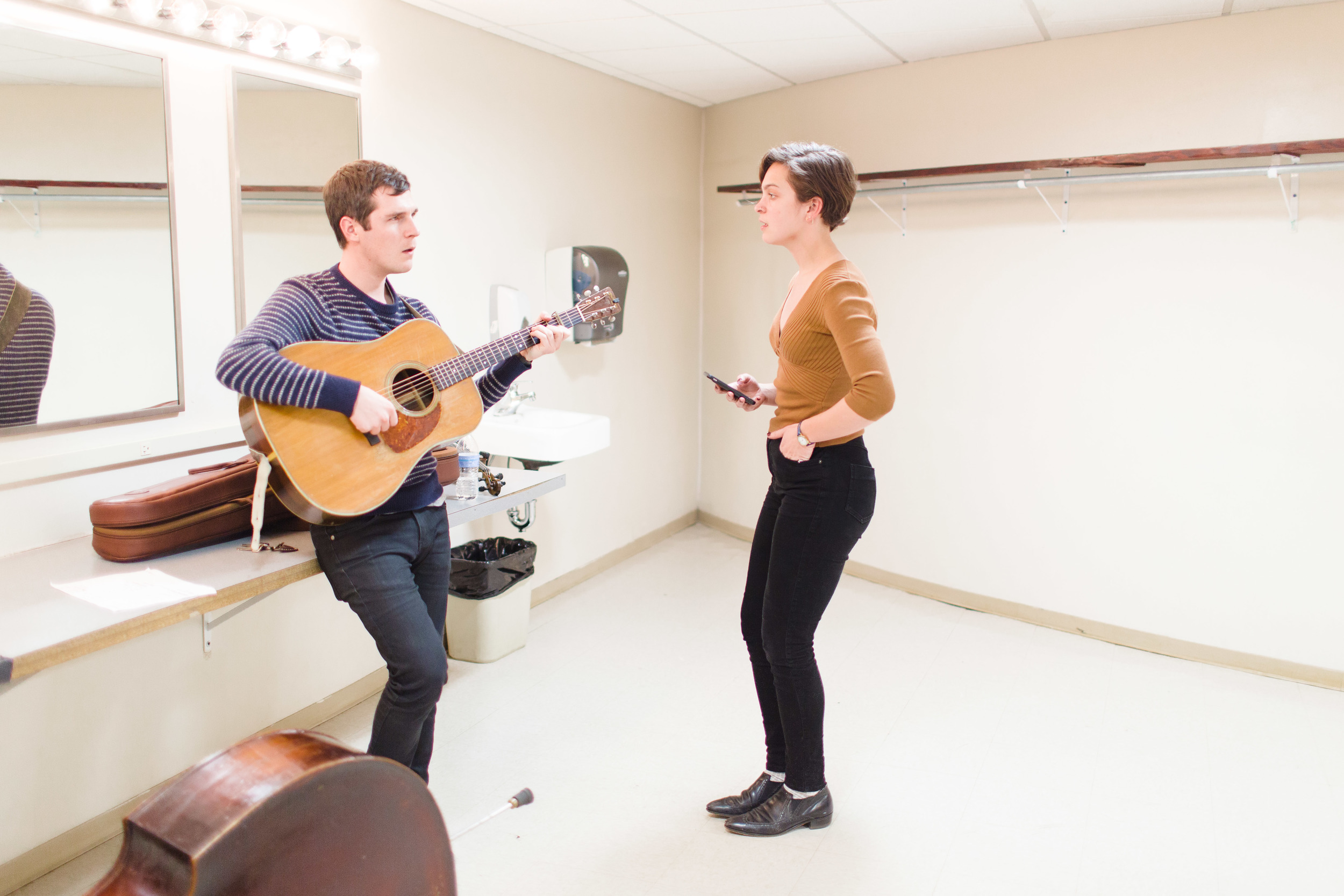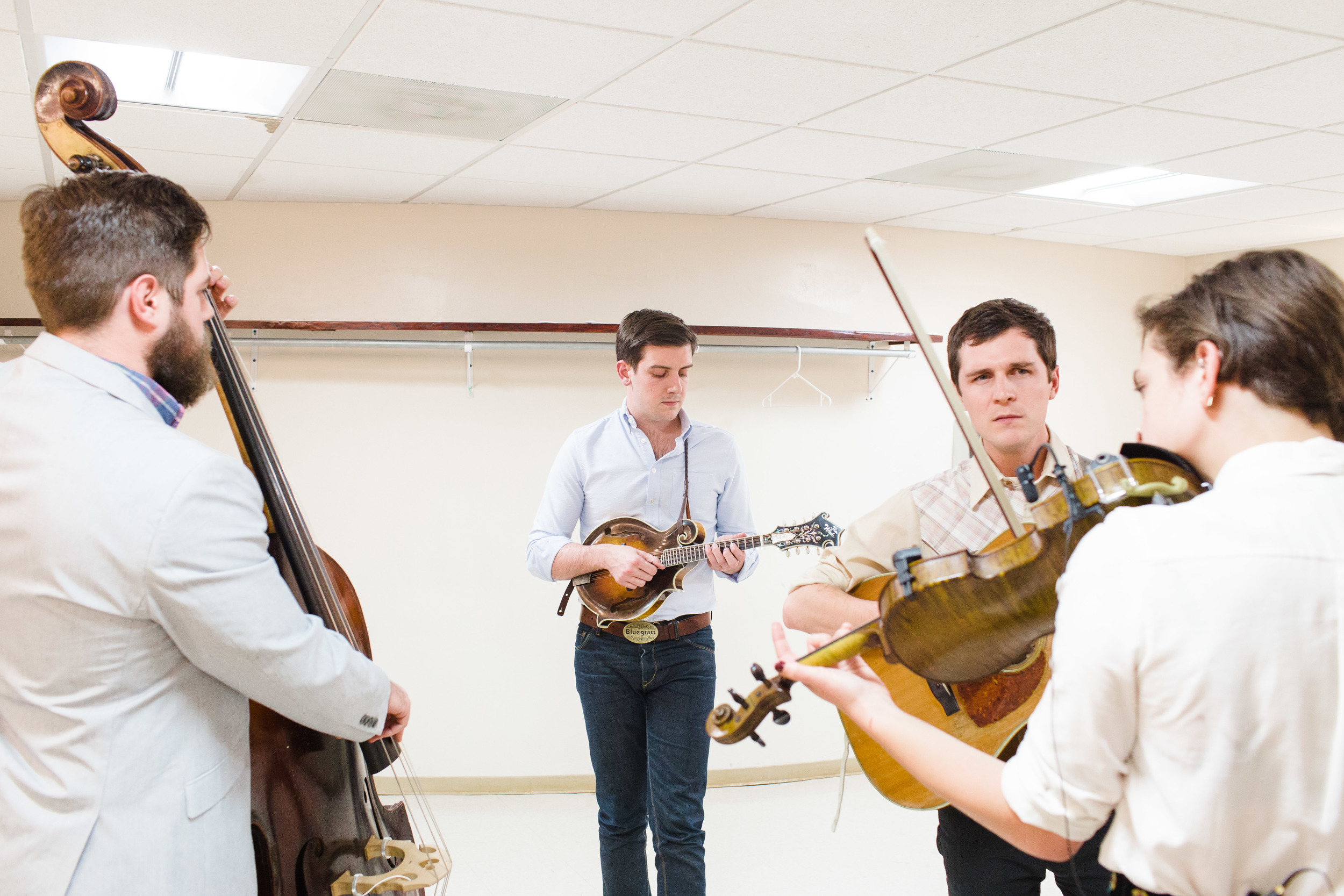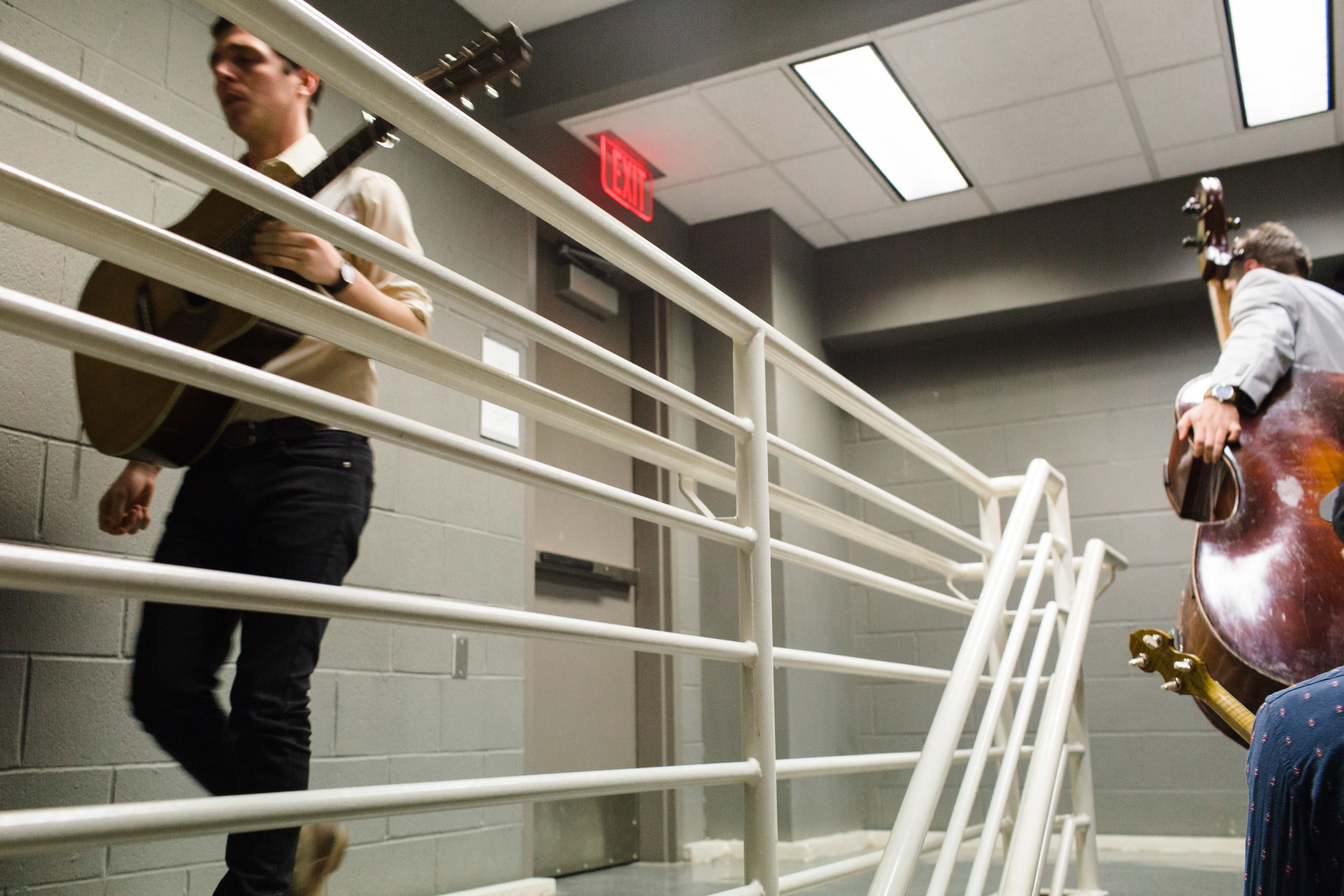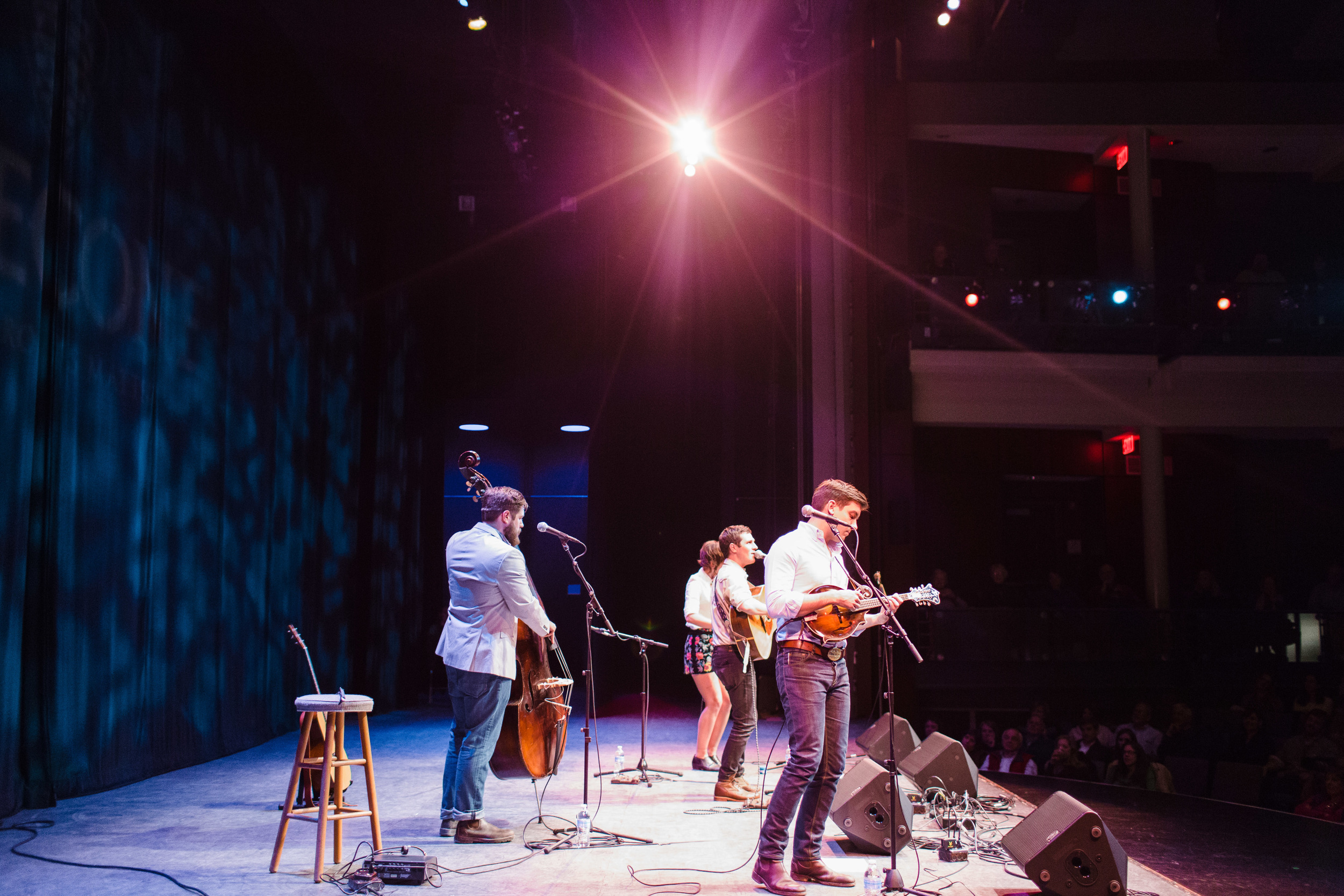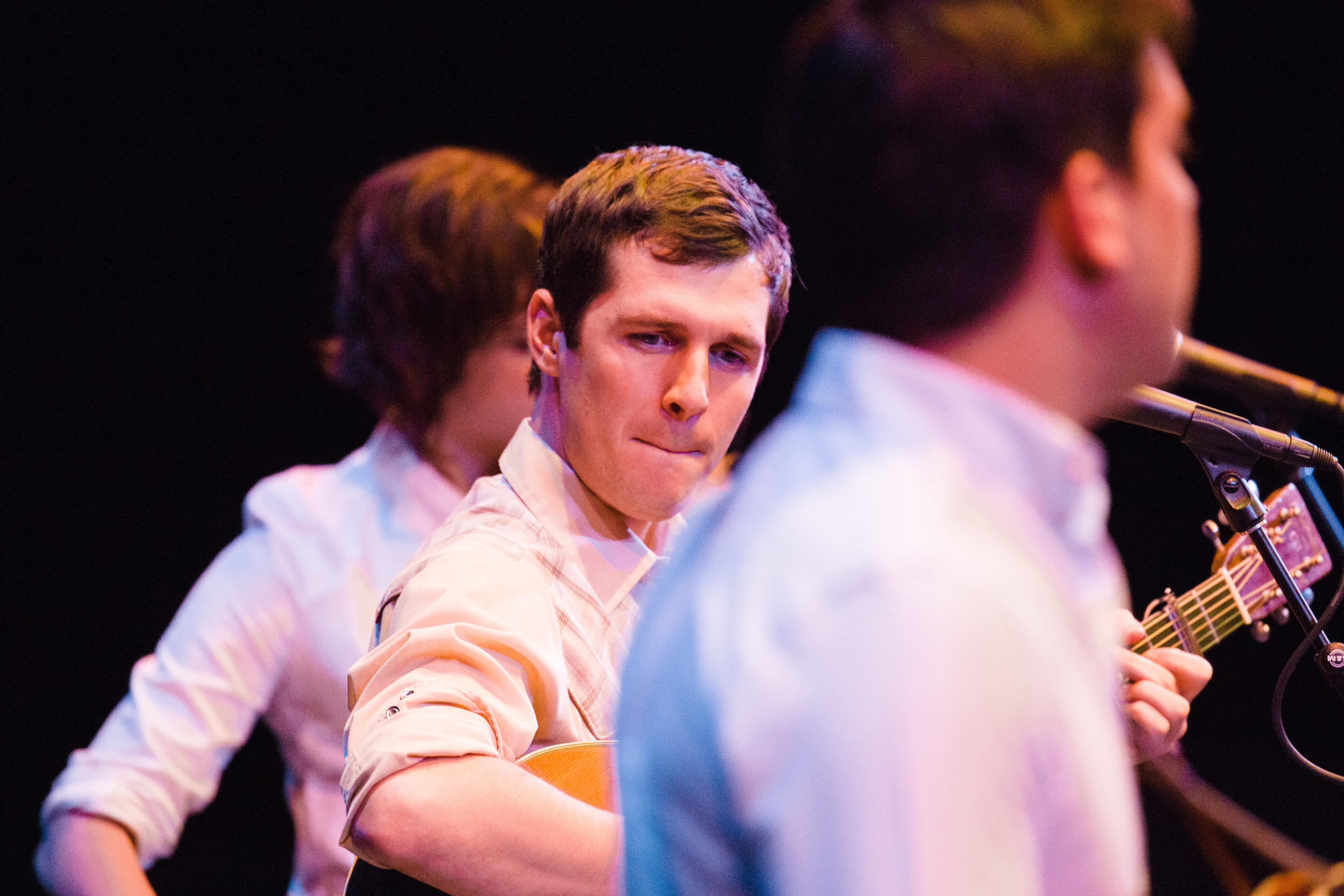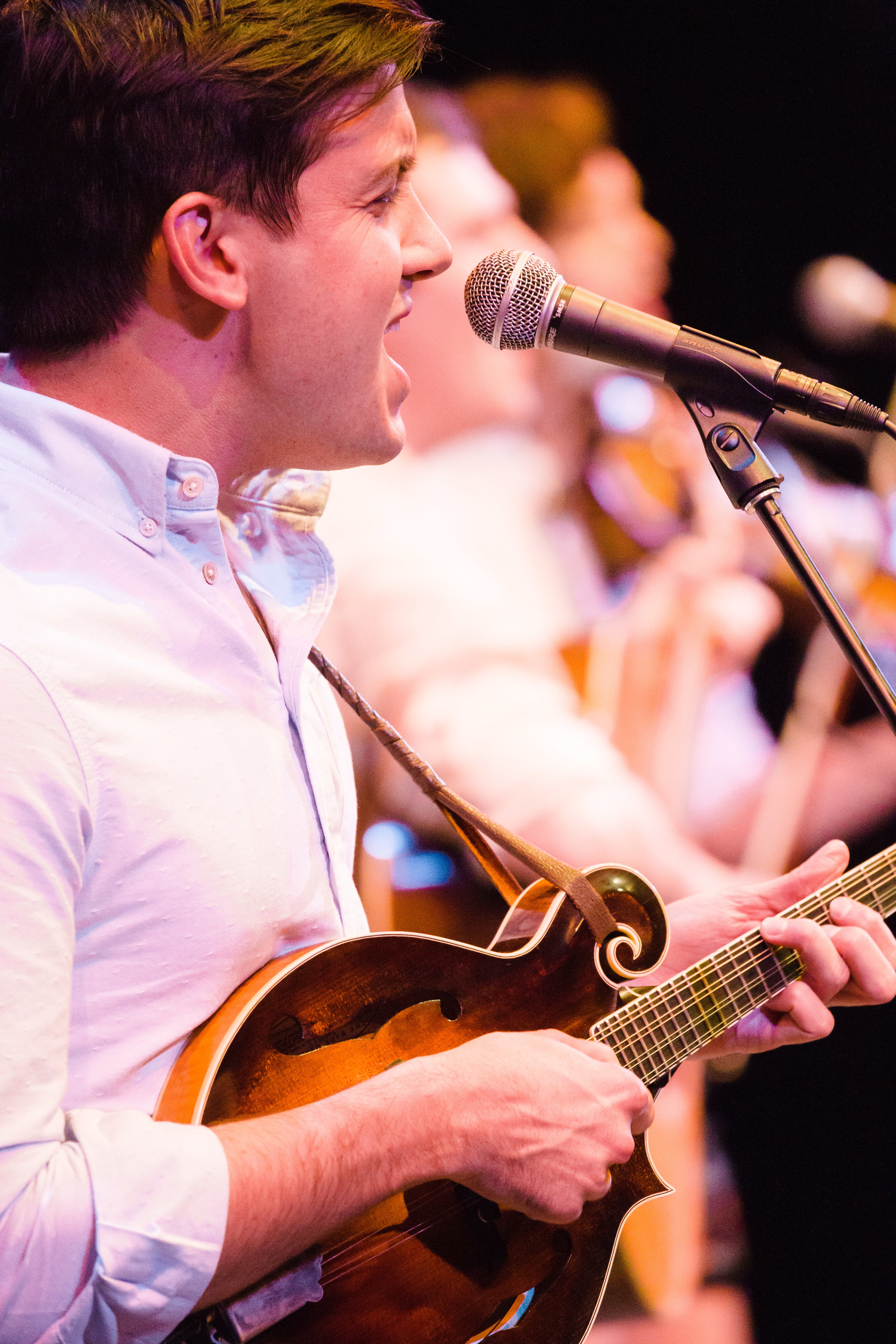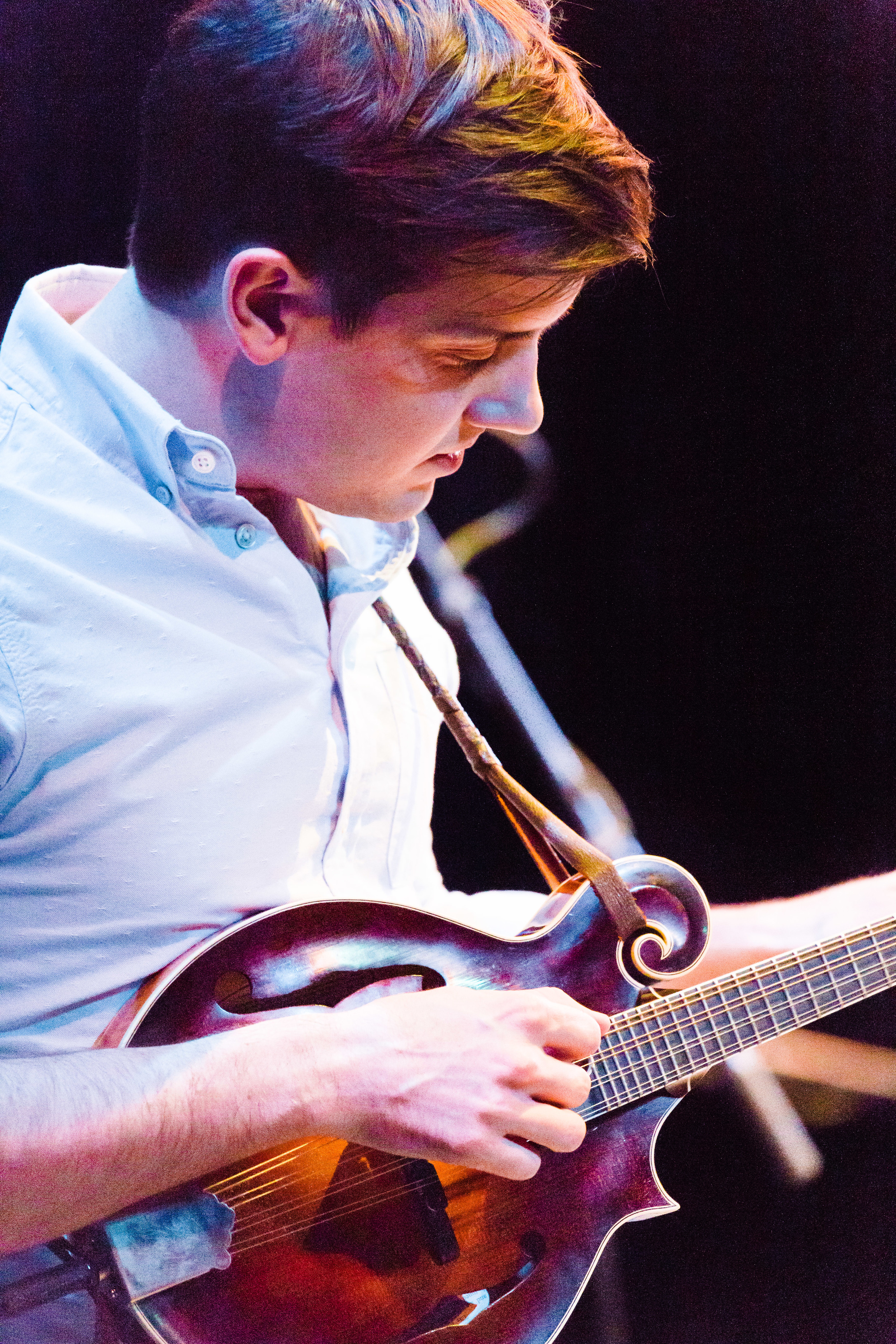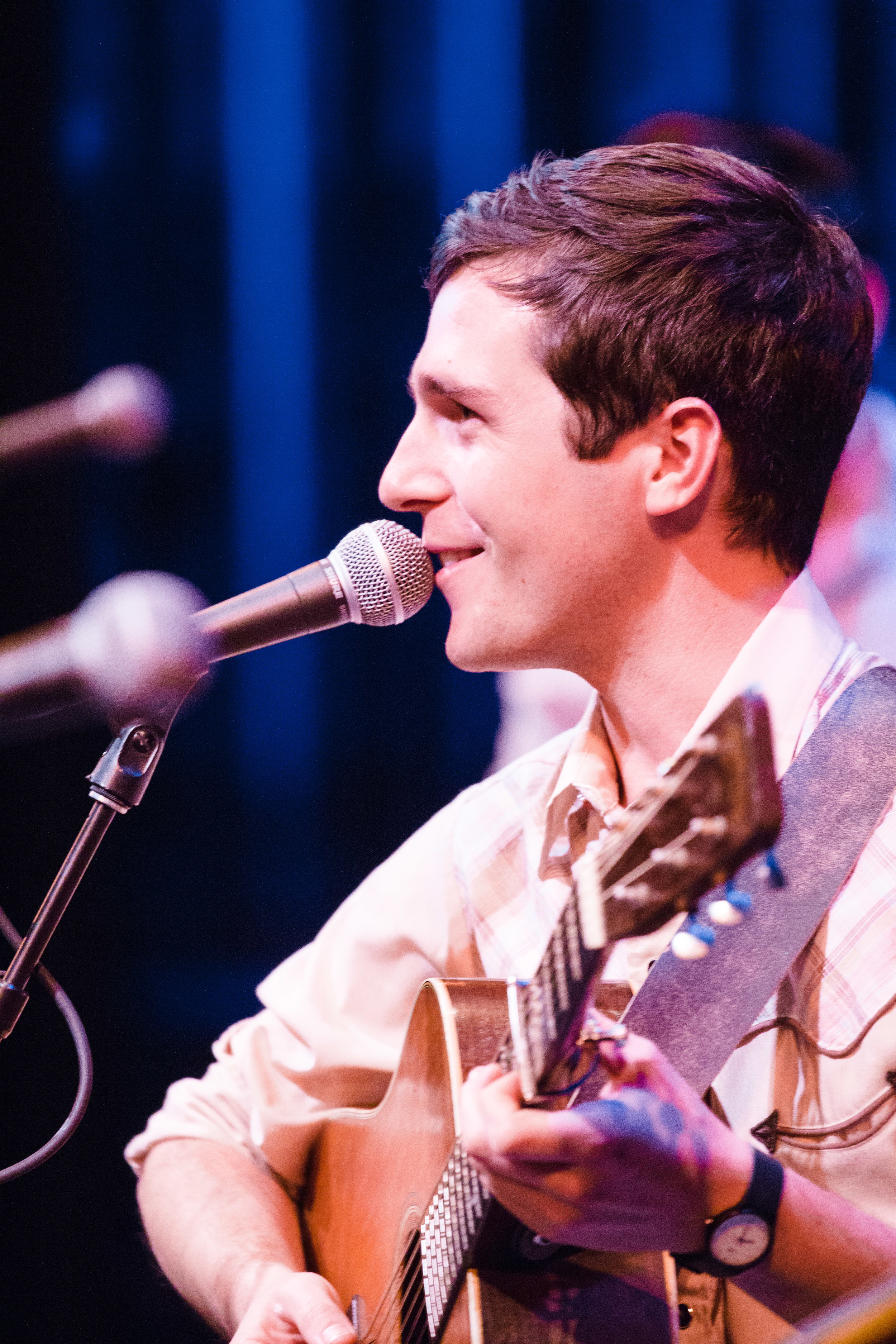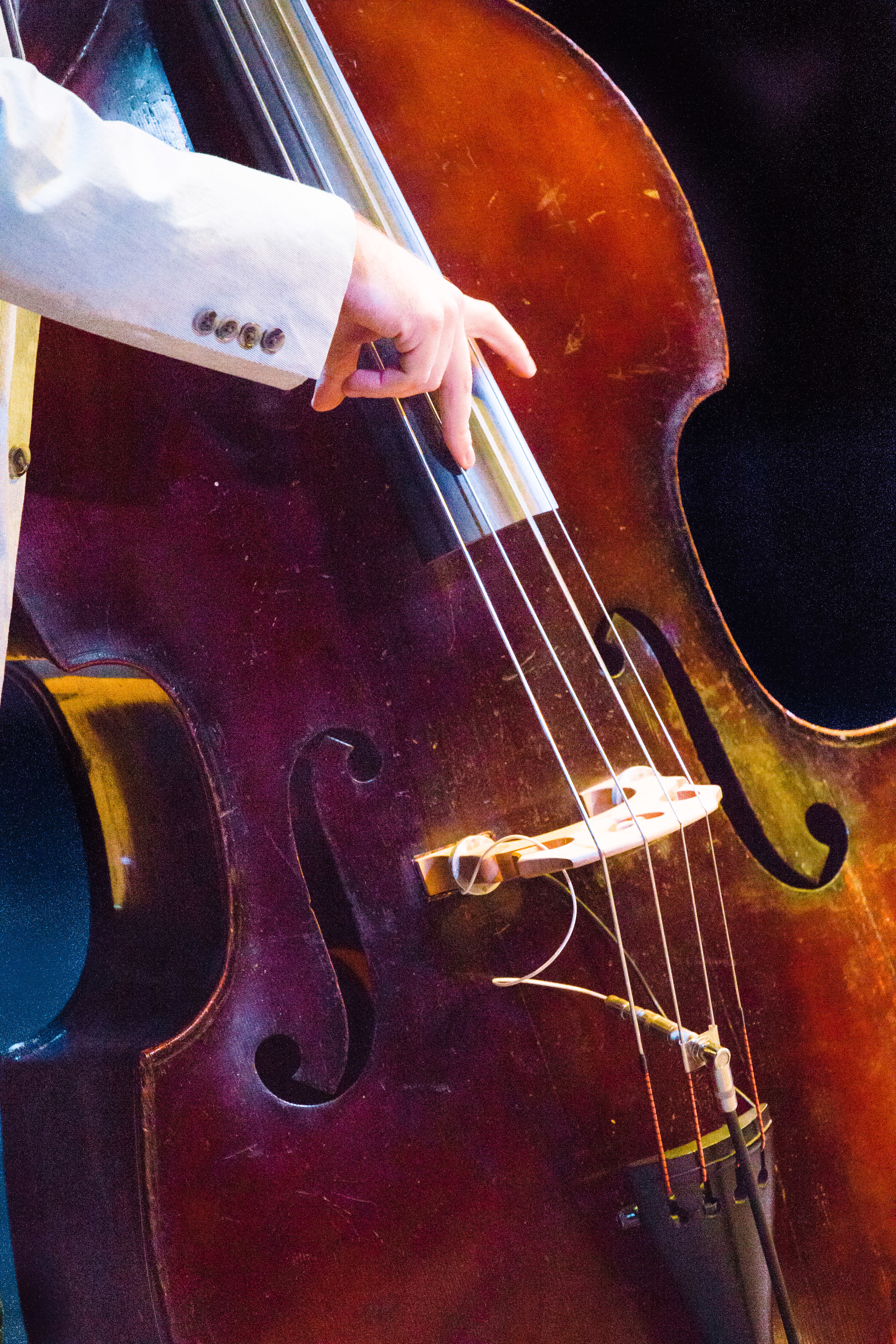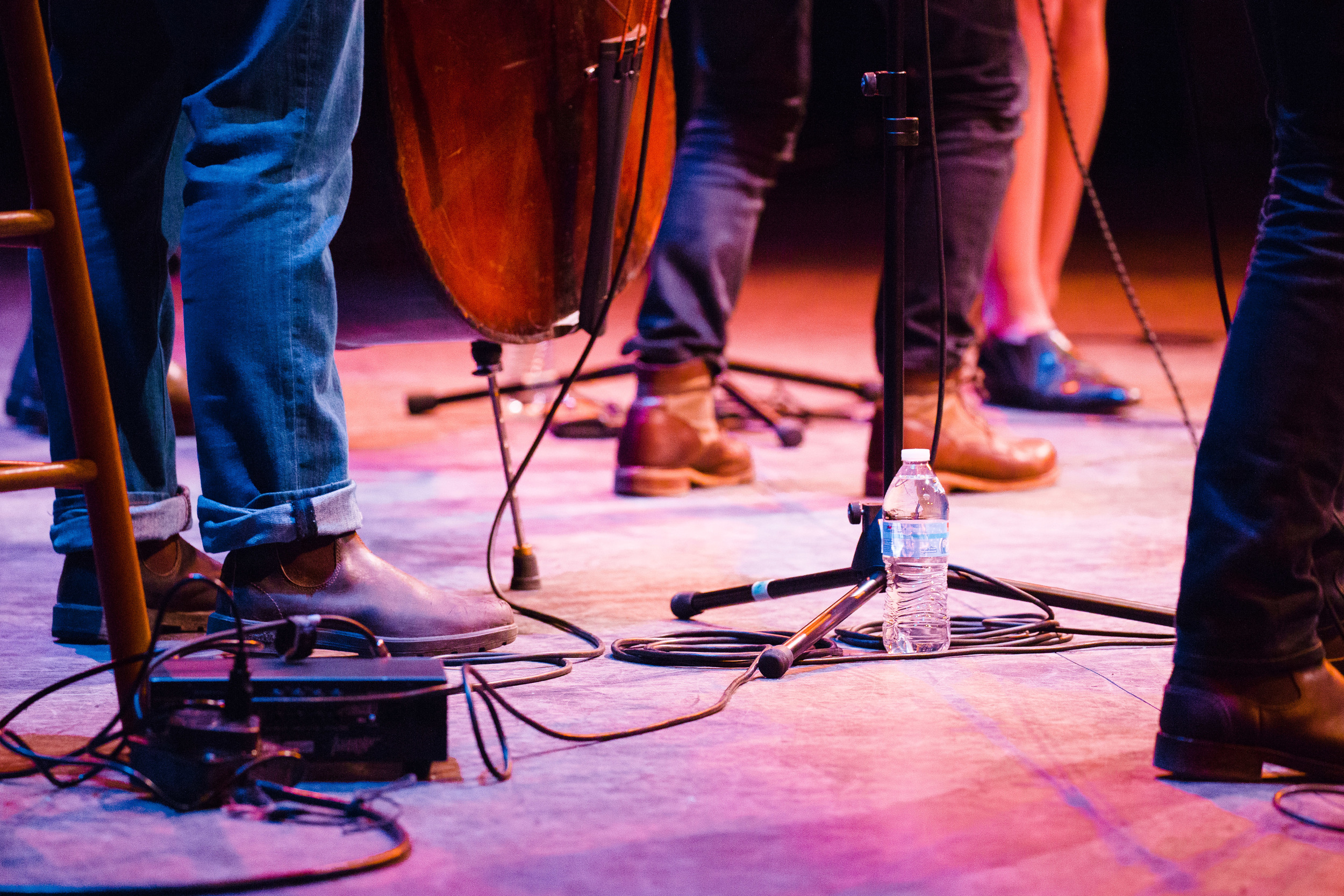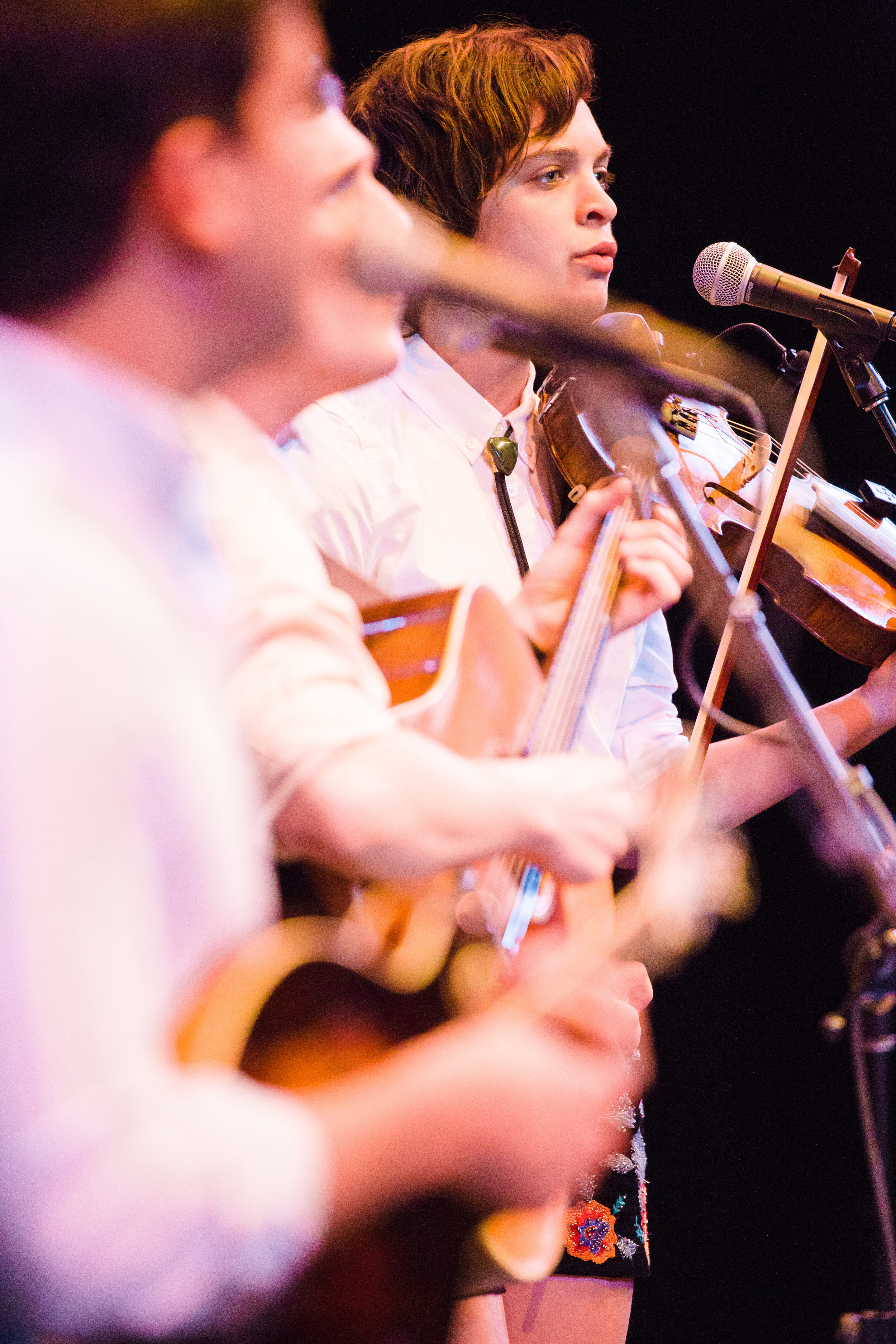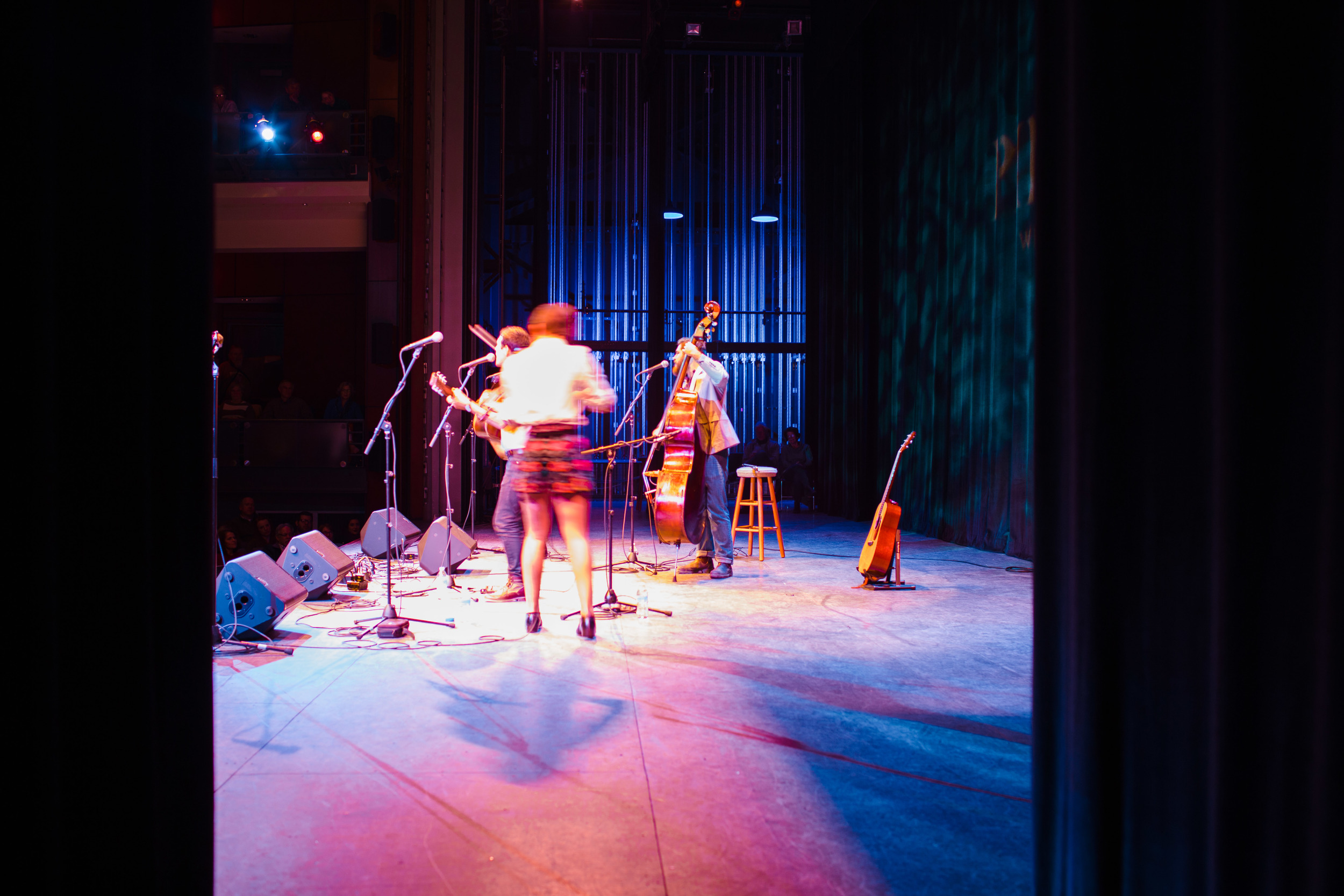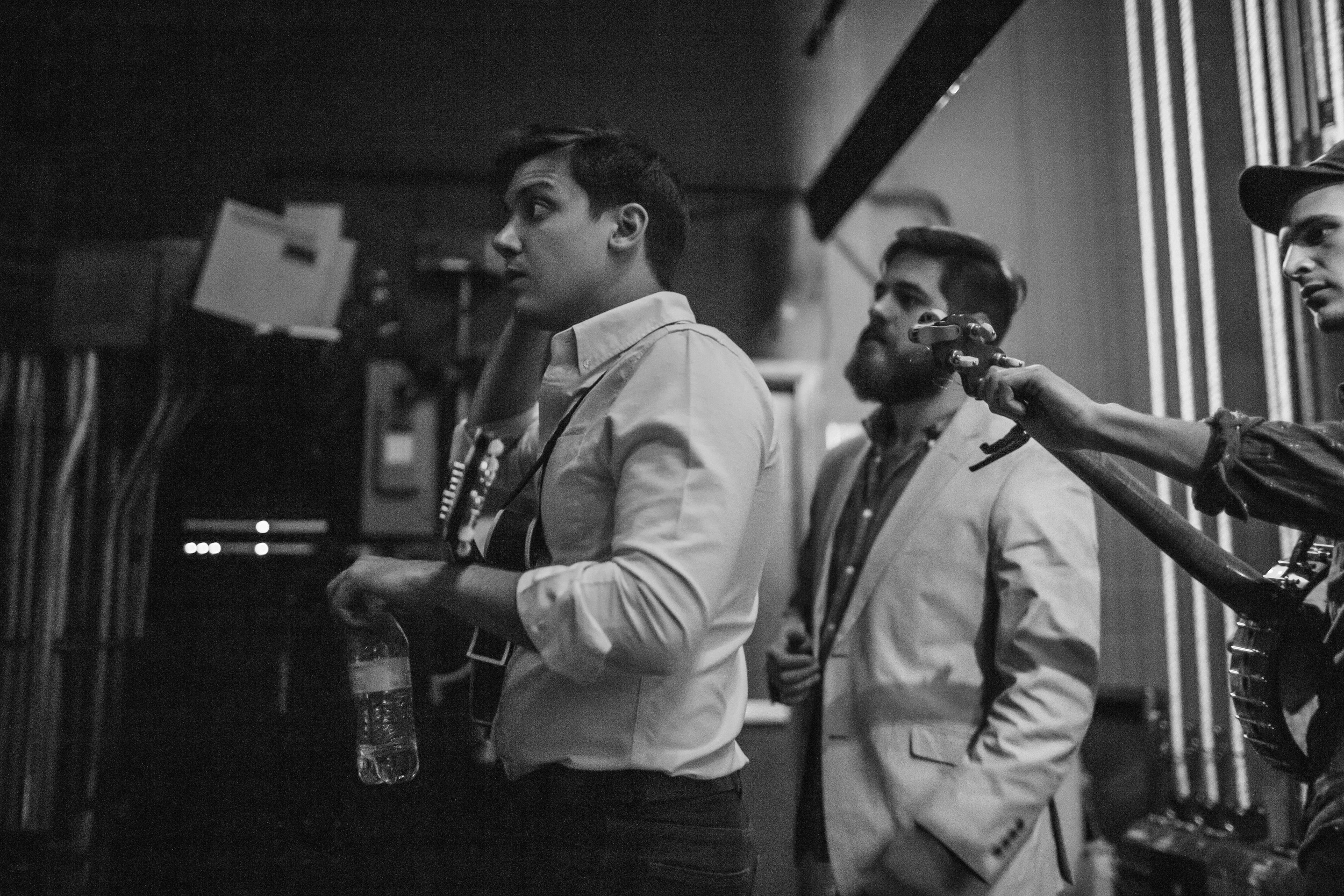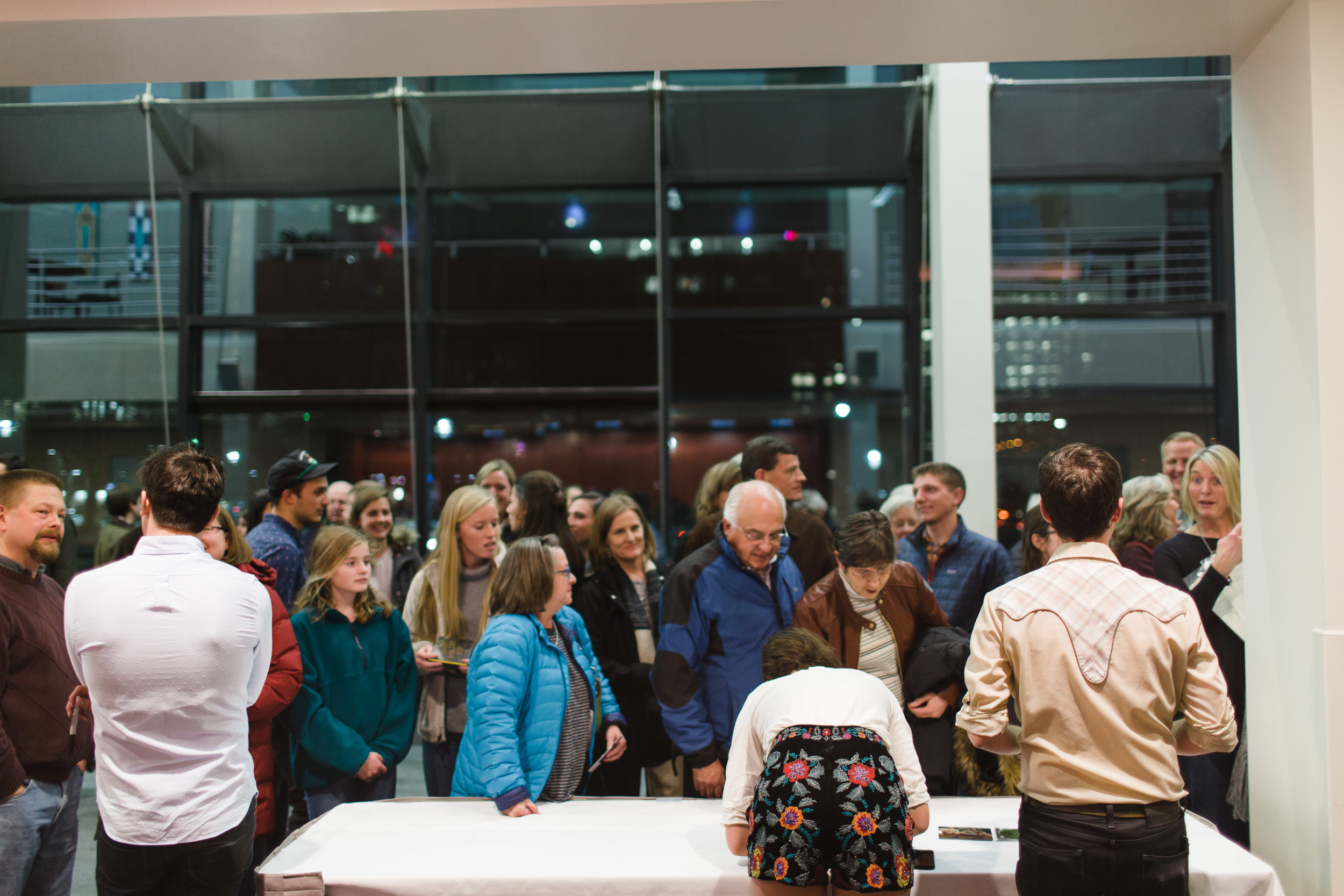At Home with Mipso
/Produced by Bit & Grain
On March 24, 2011, three guys from the Piedmont hauled a mandolin, guitar and stand-up bass onto the stage of Local 506, a fixture of the Chapel Hill music scene. The guys, Jacob Sharp, Wood Robinson and Joseph Terrell, met as undergraduates at Carolina and had been playing music together since 2010. As the story goes, they convinced the club’s management — wary of an unknown college band — that they’d, at the very least, draw enough music lovers and beer drinkers to make the show worth the venue’s while. Local 506 took the chance. Performing under the name Mipso Trio, the band performed a mix of original material and old-time tunes to a sold out show. Despite turnout, they don’t exactly remember that first show as a success.
“We were so awful. It’s horrific. We have a recording of it,” says Jacob Sharp, the band’s mandolinist. “I think in most other towns, three little dip shit 21-year-olds who decided to play a gig... [actually] there’s no reason we should have been invited to play a show anywhere.”
Jacob laughs, and continues, “But in this place, people were not clawing for it, but [they] were totally enthusiastic and hoping that we would continue and refine.”
And they did.
Since then, Mipso Trio dropped the “Trio” after adding to their lineup Piedmont native Libby Rodenbough, a talented fiddler, songwriter and vocalist. They now have two full albums under their belt, including their most recent, Old Time Reverie, which debuted last October at the number one spot on Billboard’s Bluegrass Chart.
Mipso is busy. In 2015 alone, they spent 240 days on the road, traveling all over the country to play 180 shows. This fall, millions of Americans watched the group perform their single, “Bad Penny,” at the Macy’s Thanksgiving Day Parade in New York. Momentum is only building for Mipso, now a notable force on the national folk music scene.
Schooled in the music of North Carolina folk heroes like Bill Monroe, Earl Scruggs and Doc Watson, Mipso’s body of work sounds familiar—timeless even— but feels fresh, much like early Avett Brothers' albums. At a Mipso show, you’ll likely hear original material verging on bluegrass then pop, a traditional old-time song, and, if you’re lucky, a David Bowie cover reimagined on mandolin, double bass, fiddle and guitar in four-part harmony. Unbound by form but in conversation with tradition, Mipso is a part of the ever-growing scene of North Carolina folk artists elevating and innovating traditional music.
All four members of Mipso graduated from UNC and chose to stay local because of the area’s thriving music community. Mandolin Orange and Chatham County Line, beloved folk ensembles, have worked with Mipso on records and on stage, as have Phil and Brad Cook, lynchpins of the Triangle’s music community. The band loves the area. “It’s a non-competitive scene, so it’s really supportive,” says Jacob.
Last week we joined Mipso as they kicked off their 2016 tour with a hometown show in Raleigh for PineCone’s Down Home Concert Series at Fletcher Opera Theater. But before they hit the road later this month, we asked the band to take us into the spaces that ground and inspire them here at home. Join us as we drop into a small mill village, a woodshop, a recording studio, and of course — a bar.
LIVE FROM FLETCHER THEATER
After several weeks off the road, Mipso is gearing up for a new season of touring that will take them through the Midwest and to America’s longest running folk coffeehouse, Caffe Lena. For a band with as powerful a connection to home as Mipso, few things compare to the joy of playing a local show. Last week, the band performed their first show of 2016 to a sold-out auditorium of their biggest cheerleaders. That night the energy was right.
SAXAPAHAW
Libby Rodenbough lives in Saxapahaw, a quaint mill village situated on the banks of the Haw River, about twenty minutes west of Carrboro. She’s lived there since 2014 and has worked at the Haw River Ballroom, the village’s acclaimed venue space that’s seen the likes of Lucinda Williams, Patty Griffin and Ricky Skaggs, for even longer. Libby draws creative inspiration from the ballroom and the area’s natural, rural landscape She wrote several of the melodies on Old Time Reverie while driving between Carrboro and Saxapahaw.
“It’s not like you feel isolated out here. I wanted to move basically just for symbolic purposes. I wanted to move somewhere that wasn’t Carrboro, but I knew I had to be in this area. It’s quiet and there’s not that much happening. And I do think it’s kind of a cliche thing but the rural setting out here is pretty suited to the folksy music that we do. Probably that would be true even if we did another kind of music. I don’t know many people who don’t get a little inspiration from being in nature. It certainly works for our kind of music. ”
THE WOOD SHOP
In an unassuming ranch on the outskirts of Carrboro, Wood Robinson and his roommate have converted their home’s garage into a functional wood shop they use to create rustic furniture and decor. (Yes, Wood Robinson is a woodworker.) Wood has crafted reclaimed pallet wood into coasters, North Carolina inspired wall-hangings and, most recently, a new dresser. Wood plans to eventually make basses like the one he plays and views his current work as the first step of his journey to making fine instruments.
“Before I start working on instruments and building instruments, I feel like I need to learn a lot. I’m pretty far from being able to do it now. I need to learn and I would need to go through the motions and figure out exactly what it is and what it means to make instruments. I kind of feel the same way about music. You’ve got to learn from other people and figure out the chops and get the techniques before you can actually do anything with it.”
THE RUBBER ROOM
Joseph Terrell fell in love at The Rubber Room, a Chapel Hill recording studio that has worked with the likes of Rhiannon Giddens (of Carolina Chocolate Drops) and Doc Watson. It was there Mipso made their first two albums, and it was there that Joe fell in love with the process of recording an album. It is now there, that he lives, kind of. Nestled in a sleepy neighborhood, Joseph lives with his brother in a small apartment adjacent to The Rubber Room. A self-described “gear geek,” Joseph started working in the studio after the band made its first album, Dark Holler Pop. Since then, he’s been a sound engineer for several artists and has produced independent work there. It’s a fount of creativity for Joseph, who enjoys working with musicians of different genres and learning from local legacy musicians like The Red Clay Ramblers.
“I really found I loved the process of making records… that I loved the studio. The [studio] is a very particular kind of music world. So much that makes a song sound the way it does is the production of it. There are so many factors that go into the recording of the song that you wouldn’t consider as a listener that really determine what kind of feeling you get about the song when you hear it. To me it’s like there’s a certain kind of guitar sound that reminds you of your grandfather or of World War II. You don’t know this, but it’s like putting songs in the right vibe. They can create whatever emotional impact you want to have. It’s kind of like we’re sculpting something invisible. To me it is a cool, kind of mysterious process because you don’t know what two things are going to sound like when they’re combined. It’s really fun to figure that out.”
ORANGE COUNTY SOCIAL CLUB
Jacob Sharp says you can find about any kind of Carrboro person at the Orange County Social Club (OCSC). A popular bar in the heart of Carrboro’s commercial district, OCSC is one of his favorite places in town. If he’s not meeting friends and fellow artists there for an afternoon drink over conversation, he’s likely there to watch a Carolina basketball game. When he’s off the road Jacob loves to cook and host, and OSCS is one of several spots that epitomizes the area’s dynamic creative food and beverage scene that continually inspires Jacob.
“What I love about being here is it’s as low key a forcefully creative place as I’ve found. OCSC — it’s like the best example of Carrboro’s multidimensional chilled out vibes. Hanging in here from now through whatever until 2 [AM] tonight — there are as many professors as there are musicians as people getting off work at 5 coming in for a beer with a buddy. And then there are families who come in on Saturdays at noon an hour early to make sure they get their seat for the basketball game. It’s like every little corner of Carrboro’s uniqueness that I like all in one casual space. It’s as welcoming and like vibey a spot as you can find, which is what I love.”


